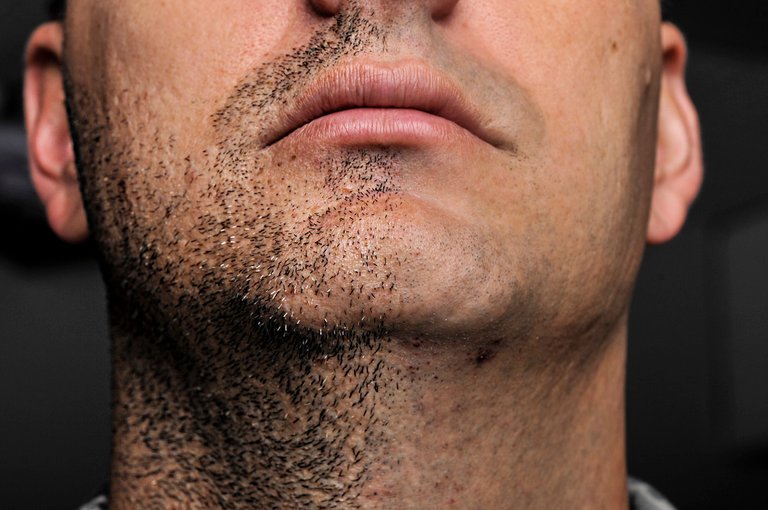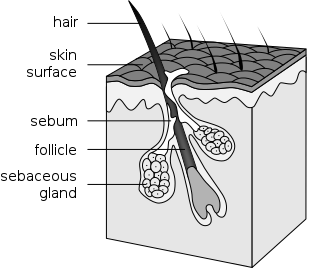Medical Myths: Does Shaving Make Hair Come Back Thicker?
Shaving: that ritual in which we all partake and which has so many similarities with life itself, consisting of an eternal fight against cold, indifferent and apparently insurmountable forces, beyond our control and that except for extreme measures, are usually invincible (as you can see, everything can sound interesting when you add enough drama). We all probably remember that moment in our puberty when we realized all the new hair (among other things) that was definitely not there before, and we get excited with the coming adulthood, not knowing that the only thing it brings are responsibilities, stress, depression and lower back pain.
But there is a common belief that makes this whole act even more futile, if possible. Shaving is said to make hair come back thicker and stronger, like weed (not that kind, I know what you are thinking), mocking our efforts to attempt against our hairy nature. But does our body really work like this? Or is it just one of many lies that we take as facts, repeated by our mothers with the intention that we trim that pre-pubescent boy “mustache” that we think makes us look like Theodore Roosevelt himself but in reality we look more like a child molester (even if we're not old enough to be one)? Stay and find out, at:
Medical Myths: Does Shaving Make Hair Come Back Thicker?

If we think about it, it's funny how many things we don't know about our own body. Most people outside of the health guild have no idea how even basic processes such as touch perception, maintenance of heartbeats, or hair growth works, and it is this ignorance that makes us susceptible to believe many things that at first glance may make sense, but are nothing more than fabrications passed down from generation to generation, such as the old myth that you cannot bathe after eating or you will suffer an embolism. And of course, the only way to get past these false beliefs is through the power of knowledge, and fortunately for you, dear readers, I am here to provide it.
To get to the bottom of this myth, let's first look at exactly how the hair growth process is like. All individual hair is born from a kind of root called hair follicle that is generated from stem cells, those capable of becoming any type of cell that the body needs, in a tubular invagination normally located in the hypodermis (the deepest layer of the skin), although depending on the area of the body where it is located, the follicle may be implanted more superficially. On the sides of this root are the sebaceous glands, producers of a lipid substance of greasy consistency called sebum, which lubricates both the growing hair and skin, and which, when pathologically affected, is responsible for diseases such as acne and sebaceous cysts. In some parts of the body surface there is another type of gland next to the sebaceous: the apocrine sweat glands, present mostly in the armpits and genital area, producing the sweat that causes the characteristic (and commonly unpleasant) body odors.
In addition, linked to each individual hair are small muscle fibers that are called arrector pili muscles, which makes hair stand on end when we feel sudden cold, or after certain strong emotional stimuli, like fear. As a curious fact (that will never have any kind of utility) this mechanism is an evolutionary vestige of when life was simpler, we were hairier, and our only concerns were to keep our caves warm and our spears sharp so as not to fall prey to a saber-toothed tiger; It had the double function of sheltering us more efficiently against the cold, and of making us appear larger to scare away possible predators, similar to what happens today in some animals, such as cats and dogs.

From each follicle the hair root is born; composed mostly of keratin, colored by melanin (the same pigment that colors the skin and the iris of the eyes), and covered by a scaly crust. Hair grows cyclically, but not synchronously, so that it falls out gradually in small amounts rather than all at once. The growth cycle of each individual hair is divided into 3 phases; starting with the anagen phase in which the cells divide constantly, generating a growth of approximately 0.35 millimeters every 24 hours, and with a duration that depends on the type of hair, ranging from 4 to 14 weeks (for the mustache) to up to 2 to 5 years (for head hair). After this growth it enters the catagen phase in which the hair shaft separates from its root and stops growing, and about 8 to 12 weeks later it begins to fall, in the telogen phase. Thanks to this cycle we lose around 30 hairs a day, and we completely renew our entire scalp every 3 to 5 years.
Now, we understand the anatomy and physiology of our hair, but we still don't know if there is a way to make it grow faster, or thicker. However, you will surely have noticed that the hair has a relatively deep root and a determined cycle, so we can already see some holes in this bodily myth. Some may think that it is true, since if we shave a part of our body the hair appears to be thicker than normal, but there is one detail of the utmost importance to get to the truth, and that is that every hair it is thicker at the root than at the tip; When we use a razor we only remove the part that protrudes from the skin, but the hair follicle, that base from which the rest of the hair grows, remains intact, so the growth continues immediately after being cut at the same speed as always, and while it is true that the nascent base will appear to be slightly thicker, this is only in comparison to the tip, but it is exactly the same thickness as before. As it grows it will become thinner, and by the time it is the same length as it was before being cut, it will also be the same thickness.
This is why it is easy to think that each time we shave the hair is thicker, but we are only seeing the base, which gives the illusion of being thicker than it was before because it creates more contrast with the rest of the skin, and the longer hair. But what about young people who start shaving for the first time and clearly have more facial or body hair every day? It's nothing more than casualty instead of causality: these first few shaves usually coincide with puberty, so all that new hair was going to grow anyway as part of the natural process of transition to adulthood, regardless of whether it was cut or not.

Now, it is true that the thickness of the hair can change, but it can only be made thinner: waxing removes the follicle from the roots, so its repeated use can eventually stop the generation of new hair, or make it grow thinner due to repeated trauma. Something similar occurs in the case of laser hair removal: although it is said to be permanent since it completely destroys the hair follicle, sometimes the hair returns after a few years, although thinner and in less quantity.
And finally, if we apply some logic we can conclude that, if this myth were true, most of us would have remarkably thicker hair on the parts of the body that we shave frequently, especially women who shave their legs and armpits all the time, but if we go a little while without shaving and let nature take back the areas it has lost, we will notice that this is simply not the case. This myth may be the only consolation for young people with insufficient hormonal production to fulfill their dreams of having a glorious lumberjack beard that is everyone's envy, but sadly for them, it is false. But not everything is lost, there will always be hair implants.
References:
- Scientific American - Fact or Fiction?: If You Shave (or Wax), Your Hair Will Come Back Thicker
- MayoClinic – Does shaving unwanted body hair make it grow back thicker and darker?
- Business Insider – The biggest myth about shaving hair is one you probably believe – here’s why
- Wikipedia – Hair
- Wikipedia – Hair follicle
- Wikipedia – Sebaceous gland
- Science Focus – Why do our hairs stand on end when we’re cold
I really did believe that shaving makes hair come back thicker. This is a good way to debunk such a belief.
Can you break the large chunk paragraphs into small pieces to improve the readability of this post? It is an interesting post article but the large block of texts can be a pain in the butt sometimes. Keep up the good efforts!
Thanks you, I appreciate the tip! Didn't notice how long those paragraphs were, it should look better now.
Thanks for your contribution to the STEMsocial community. Feel free to join us on discord to get to know the rest of us!
Please consider supporting our funding proposal, approving our witness (@stem.witness) or delegating to the @stemsocial account (for some ROI).
Please consider using the STEMsocial app app and including @stemsocial as a beneficiary to get a stronger support.
Awesome !
It's was quite a mystery to me😂
And to me! I remember it took me quite a long time to shave for the first time because I believed this myth lol
Ahaha nicely written!
Naaah, not like weed. Like grass! Actually it is true for grass… :D
Concerning the hair myth, I must admit I never questioned it, although I have heard that a lot. Mostly probably because I never paid much attention to my beard and haircut :)
Thank you! I think most of us never questioned it, not even I until I read about it some months ago. A few hours after posting this I met with a few friends and one of them, who has never been able to grow a beard, confessed to us that he was the only one who kept shaving daily even on lockdown with the hope that, someday, his hair will come back thicker. I didn't have the heart to tell him it was all a lie.
I noticed the follow, btw, I'm glad you enjoy my content ;)
Ahaha! Poor fellow. It was wise not to disappoint him in those hard times ;)
Greetings Mike961, a pleasure to greet you and congratulate you for the content of your article, no doubt you cleared many doubts on the subject, I found interesting the phenology of hair the stage of anagea, catágena and telógena and made me remember the phenology of herbs ( Vegetative, elongation and reproductive) as I am a specialist in pastures and fodder. Again let me reiterate my congratulations on the content was didactic and you broke down that myth of hair thickening after cutting. We are still in communication!
Gracias, me alegro de que te haya gustado! A veces resulta sorprendente la manera en la que la fisiología de nuestro cuerpo se parece a procesos naturales; y verdaderamente hay mucha similitud entre el crecimiento del cabello y el de plantas. Saludos, gracias por tu comentario!
Congratulations @mike961! You have completed the following achievement on the Hive blockchain and have been rewarded with new badge(s) :
You can view your badges on your board And compare to others on the Ranking
If you no longer want to receive notifications, reply to this comment with the word
STOPDo not miss the last post from @hivebuzz:
Support the HiveBuzz project. Vote for our proposal!